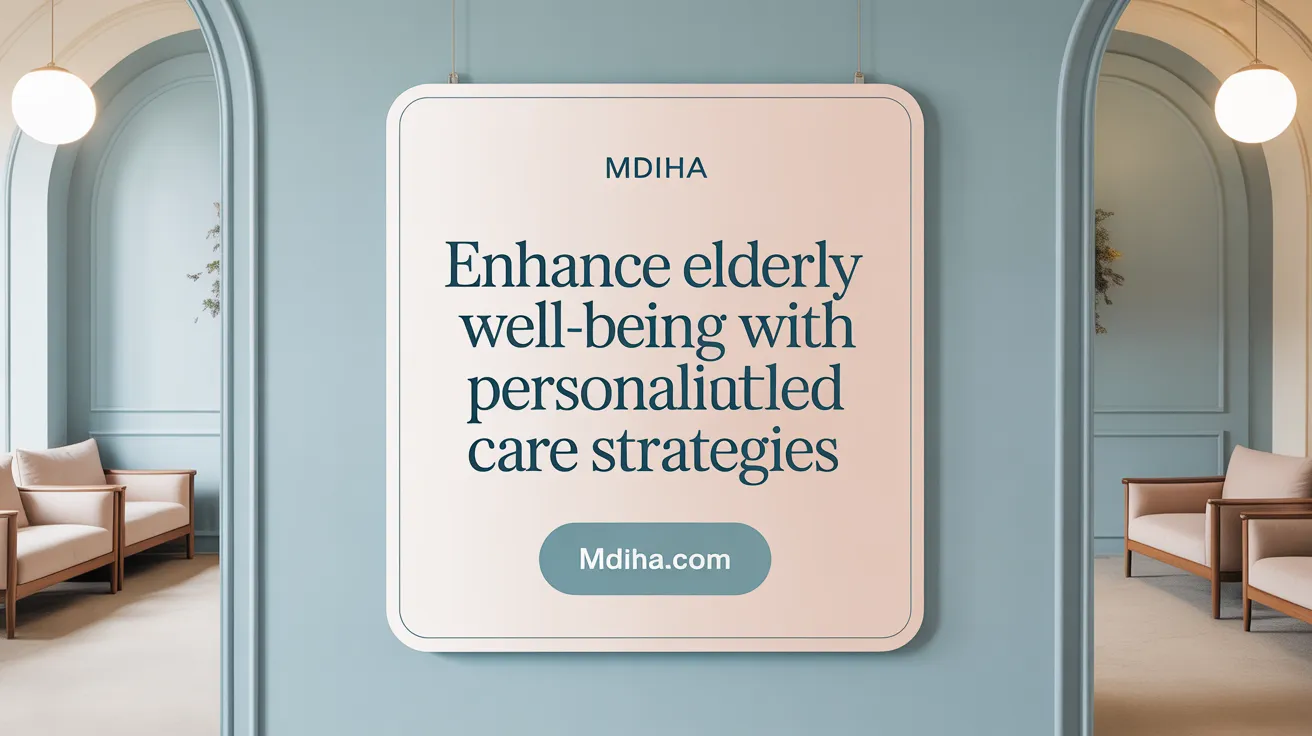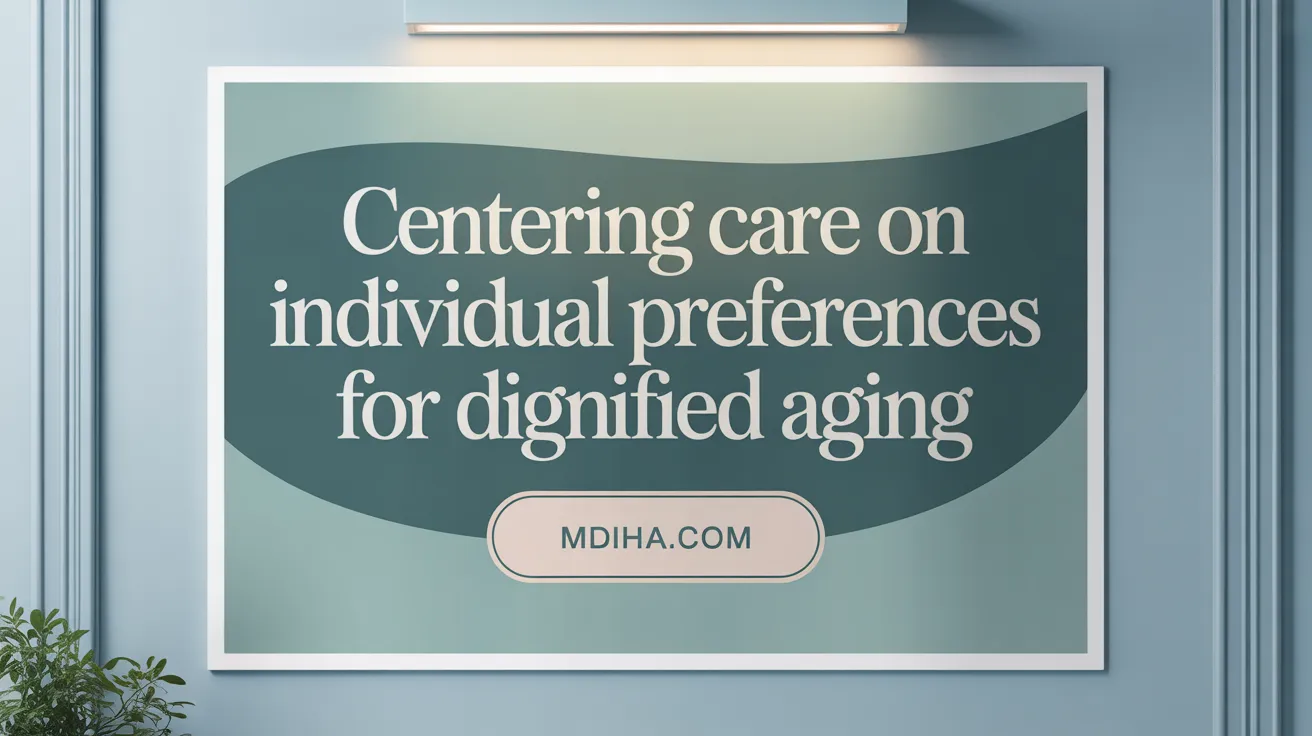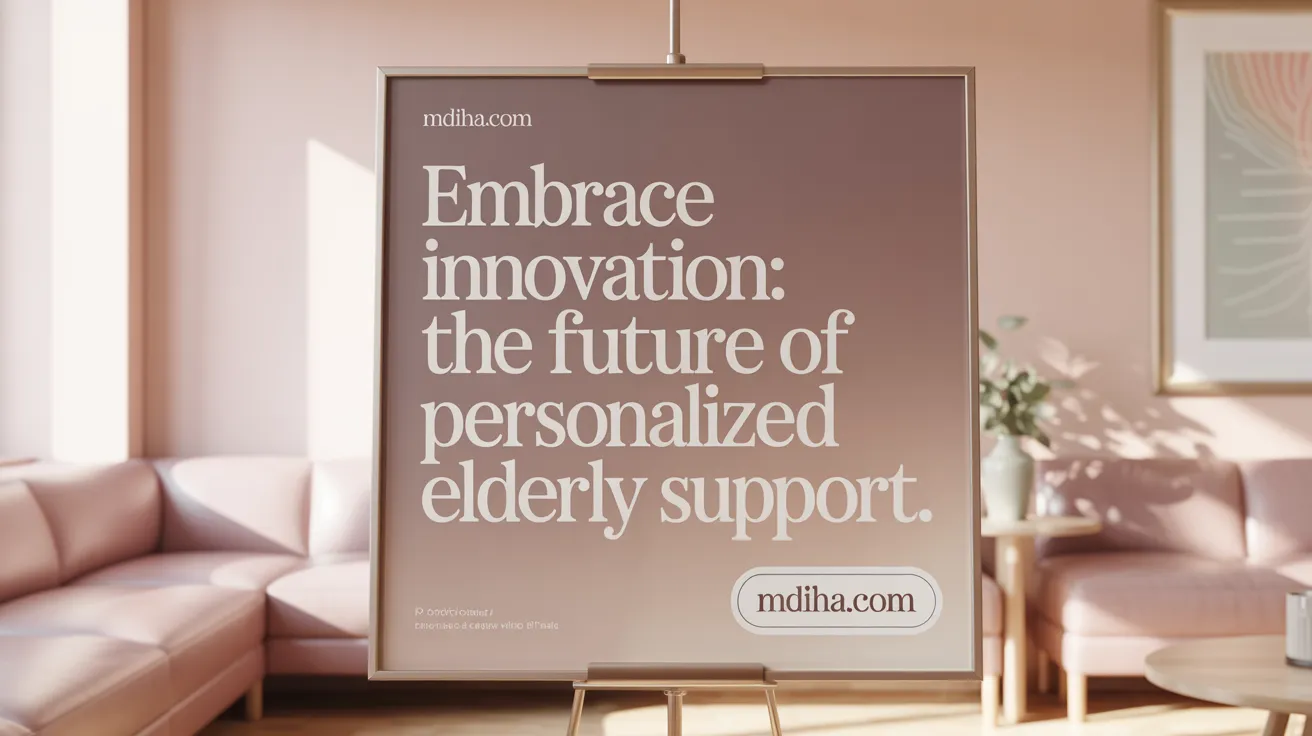Understanding the Unique Journey of Aging
Aging is a deeply personal experience shaped by unique health conditions, preferences, and lifestyles. Personalized aging care recognizes this individuality by tailoring healthcare and support services across different life stages, promoting dignity, independence, and emotional well-being. This approach is essential to meet the evolving needs of older adults, ensuring that each senior's distinct journey is respected and nurtured.
The Importance of Personalized Aging Care Across Life Stages
Why is personalized aging care important throughout different life stages?
Personalized aging care plays a crucial role in addressing the diverse and changing needs of seniors as they progress through various stages of life. As individuals age, their health status, emotional landscape, and social connections evolve, making a one-size-fits-all approach ineffective.
At each stage, personalized care ensures that interventions align with specific health conditions, whether managing chronic illnesses like arthritis, diabetes, or dementia. Tailoring routines, medication, and support activities helps prevent complications and enhances overall well-being.
In addition to physical health, personalized care emphasizes emotional and social needs. Many seniors find comfort in familiar objects and personal preferences, such as listening to music or viewing photographs. Incorporating these elements into care routines fosters emotional stability, memory, and identity.
Collaborative development of care plans involves seniors, family members, and healthcare professionals working together. This approach ensures that care strategies are not only medically appropriate but also respectful of personal choices and cultural backgrounds.
As health conditions change, so do care requirements. The adaptability of personalized plans is key to maintaining safety and independence. Regular assessments help update care strategies, reducing risks of hospitalization and supporting continued participation in activities that promote mental and physical health.
Ultimately, personalized aging care supports seniors in maintaining their independence and dignity. It empowers them to carry out daily routines safely, stay socially connected, and enjoy a higher quality of life. By recognizing the unique journey of each individual, personalized care creates a more compassionate and effective framework for aging well.
Benefits of Tailored Elderly Care for Health and Well-Being

What are the benefits of tailored elderly care for health and well-being?
Personalized care for seniors offers many advantages that significantly impact their overall health and happiness. By developing care plans that reflect each individual's specific medical conditions, lifestyle, and preferences, caregivers can better support physical and mental health.
One major benefit is the improvement of health outcomes. Tailored approaches facilitate effective management of chronic diseases such as diabetes, arthritis, dementia, and hypertension. Custom treatments, medication routines, and regular monitoring help prevent complications and hospitalizations, ensuring seniors remain as healthy as possible.
Safety and independence are also at the forefront of personalized care. Modifications to home environments — like installing fall prevention features or accessible features — help seniors perform daily activities safely. Regular assessments identify potential risks, allowing timely interventions that foster a sense of control, dignity, and autonomy.
Psychological well-being is enhanced through social engagement and cognitive activities. Connecting seniors with mental stimulation, companionship, and leisure pursuits such as music, gardening, and social outings can reduce feelings of loneliness and depression. Incorporating social interactions into care routines helps seniors maintain emotional stability and a positive outlook.
Cost-effectiveness is another important advantage. Custom plans often focus on targeted interventions, reducing unnecessary hospital visits and emergency care. This efficiency not only improves the quality of life but can also result in lower healthcare costs, making care more sustainable.
In summary, personalized elderly care supports physical health, safeguards independence, manages chronic diseases effectively, alleviates loneliness, and provides a more satisfying experience for seniors. These benefits collectively foster a better quality of life, ensuring elders live with dignity, purpose, and comfort.
Components and Methods Involved in Personalized Aging Care
 What components and methods are involved in personalized aging care?
What components and methods are involved in personalized aging care?
Personalized aging care adopts a holistic approach that starts with comprehensive assessments. These evaluations examine various aspects of an older adult's life, including physical health, cognitive function, emotional well-being, social connections, and spiritual needs. By understanding these factors, caregivers can create plans that respect individual preferences and cultural backgrounds.
A central framework used is the 4Ms — what matters, medication, mentation, and mobility. This model helps develop tailored care strategies, ensuring that care aligns with the senior's priorities, such as maintaining independence, managing chronic conditions, and supporting mental health.
Developing effective care plans involves collaboration among multiple disciplines, including medical professionals, social workers, family members, and the seniors themselves. Clear communication among all parties ensures that everyone's insights and preferences are integrated into the plan.
Technology plays a significant role in personalized care. Telehealth services facilitate remote consultations, while sensors and monitoring devices track vital signs, detect falls, and provide alerts, enhancing safety and allowing for proactive interventions.
Flexibility in care planning is crucial. Regular reassessments enable adjustments to be made as the seniors’ needs evolve due to health changes or shifts in personal circumstances. This ongoing process supports sustained independence, dignity, and improved quality of life.
In addition, personalized aging care encompasses planning for suitable living arrangements, managing healthcare and financial affairs, and offering emotional and spiritual support. These elements contribute to an environment where older adults feel valued, respected, and empowered.
The combined use of comprehensive assessments, tailored plans based on the 4Ms, multidisciplinary teamwork, innovative technology, and adaptable strategies form the backbone of effective personalized aging care—aiming to optimize health, happiness, and autonomy for seniors.
Evolving Needs and Expectations of Older Adults Across Decades

How do the needs and expectations of older adults evolve over time?
As individuals age, their needs and expectations tend to change in response to physical, cognitive, and social developments. In the early stages of aging, many prioritize preventive health measures, wellness activities, and activities that help maintain their independence. They often seek personalized care that supports their routines and respects their preferences.
However, as health conditions like arthritis, diabetes, or hypertension become more prominent, the focus shifts toward managing chronic illnesses. This includes specialized routines, medication management, and closer symptom monitoring. Maintaining mobility, safety, and reducing pain become central concerns.
In later years, the demand for tailored healthcare intensifies. Older adults increasingly seek community and social services that foster social engagement, combat loneliness, and promote emotional well-being. They value environments that support their mental health, spiritual needs, and overall quality of life.
Despite these evolving needs, challenges such as workforce shortages and accessibility gaps can hinder optimal care delivery. Many seniors want to stay socially active and connected, which underscores the importance of supportive environments, community programs, and innovative technologies aimed at enhancing engagement and safety.
Longer lifespans and greater diversity among older populations have driven a shift toward more personalized and comprehensive care models. These models must be adaptable to meet changing health states and social circumstances, ensuring seniors maintain dignity, independence, and happiness throughout their later years.
Understanding this progression highlights the necessity for integrated, flexible, and person-centered approaches in elder care, supporting not just lifespan but also the quality of those years.
Significance of Understanding Individual Care Preferences for Person-Centered Care
 Recognizing each older adult's unique care preferences is fundamental to delivering effective, compassionate, and respectful person-centered care. Every individual brings a set of values, life experiences, cultural backgrounds, and emotional needs that shape their expectations and comfort levels with various caregiving approaches.
Recognizing each older adult's unique care preferences is fundamental to delivering effective, compassionate, and respectful person-centered care. Every individual brings a set of values, life experiences, cultural backgrounds, and emotional needs that shape their expectations and comfort levels with various caregiving approaches.
For example, many seniors have specific preferences that can significantly influence their emotional well-being. Preferences like listening to favorite music, viewing meaningful photographs, or engaging in hobbies such as gardening or crafts help maintain their identity and promote happiness.
Understanding these preferences enhances trust and fosters open communication between caregivers and seniors. When older adults feel listened to and their choices respected, they’re more likely to be engaged in their care and show greater cooperation, leading to better health outcomes.
This personalized approach also empowers seniors by supporting their independence and allowing them to maintain control over daily routines—be it their diet, activities, or social interactions. Such autonomy is closely linked to higher satisfaction with care, reduced feelings of helplessness, and improved mental health.
In practical terms, acknowledging individual preferences makes care plans more effective. For instance, customizing medication routines or activity schedules according to personal likes and dislikes leads to better adherence and fewer complications. It also allows care providers to identify specific needs, such as mobility support or emotional connection, that can be addressed proactively.
However, disparities can exist when preferences are overlooked, particularly among marginalized groups or those with complex health issues. Ensuring that every senior's preferences are understood and respected helps reduce healthcare disparities, boosts overall well-being, and enhances quality of life.
Overall, appreciating the diverse, personal preferences of older adults is essential for creating holistic and meaningful care that promotes dignity, respects individuality, and supports healthier aging.
Role of Personalized, Holistic Healthcare Services in Aging
What role do personalized, holistic healthcare services play in aging?
Holistic healthcare services are fundamental in supporting seniors as they age, focusing on the whole person rather than just individual health conditions. This approach encompasses physical, mental, emotional, spiritual, and environmental factors, recognizing that each aspect influences overall well-being.
By adopting personalized strategies, these services promote prevention and lifestyle management. Seniors are encouraged to engage in activities like balanced nutrition, regular physical exercise, stress reduction techniques, and social interactions. These practices help maintain health, enhance mood, and boost resilience.
In addition to conventional medical treatments, holistic care incorporates complementary therapies such as acupuncture, massage, meditation, and aromatherapy. These therapies can help manage chronic pain, reduce stress, improve sleep quality, and foster emotional stability.
This comprehensive approach aims to preserve seniors' independence and mental resilience. It supports emotional well-being, encourages spiritual comfort, and nurtures a sense of community and purpose.
The ultimate goal is to enhance quality of life by creating an environment where older adults feel cared for and empowered. Personalized, holistic healthcare also has the potential to reduce hospital admissions by addressing health issues proactively and managing chronic conditions effectively.
In summary, this integrative model ensures that aging individuals receive tailored support that nurtures all facets of health, leading to more fulfilling and healthier aging experiences.
| Aspect | Focus Areas | Additional Details |
|---|---|---|
| Physical | Exercise, nutrition, chronic disease management | Prevents complications, enhances mobility |
| Mental and Emotional | Stress reduction, social engagement, counseling | Reduces loneliness, supports mental health |
| Spiritual | Faith, meditation, purpose | Provides meaning and emotional resilience |
| Environmental | Safe, accessible living spaces, community connections | Promotes independence, reduces hazards |
| Complementary Therapies | Acupuncture, massage, aromatherapy, meditation | Manages symptoms, alleviates stress, improves sleep |
This comprehensive, personalized approach helps seniors navigate aging with dignity and vitality, emphasizing prevention and supportive care across all life domains.
Future Outlook: Customized Care Strategies Shaping Aging Support
 The future of aging support is set to become increasingly personalized and technologically advanced, emphasizing independence, prevention, and social engagement.
The future of aging support is set to become increasingly personalized and technologically advanced, emphasizing independence, prevention, and social engagement.
Emerging innovations such as artificial intelligence (AI), data analytics, and remote monitoring devices will enable caregivers and healthcare providers to deliver proactive, tailored interventions. These technologies can analyze individual health data, predict potential complications, and facilitate timely responses, ensuring seniors receive the right support at the right time.
Community programs and expanded home-based services will play a vital role in fostering aging in place. Telehealth platforms, social connectivity tools, and home modifications will enhance seniors' ability to live comfortably and safely in their familiar environments. Programs that bridge social gaps help combat loneliness, bolster mental health, and promote lifelong learning.
Supporting caregivers and respecting cultural diversity are increasingly recognized as essential components. Culturally sensitive care practices, caregiver education, and respite options will ensure support systems are inclusive and effective.
Developing sustainable policies that adapt to demographic shifts and technological advancements is crucial. These policies will focus on resource allocation, funding, and standards that prioritize comprehensive, dignified, and flexible aging services.
Overall, the evolution of elder care will revolve around holistic, person-centered models. These models aim to preserve dignity, foster social connections, and encourage continuous engagement with life’s opportunities, ensuring seniors live healthier, happier, and more autonomous lives.
This outlook aligns with ongoing research and trends emphasized in digital platforms and community initiatives, highlighting a shift toward an integrated, compassionate approach to future aging support.
Personalized Care: A Cornerstone for Thriving in Later Life
Personalized aging care matters profoundly across decades of life because it honors the distinct journeys of older adults, catering to their dynamic health, emotional, and social needs with compassion and precision. Through individualized approaches that blend comprehensive assessments, culturally sensitive practices, and innovative technologies, personalized care enhances independence, dignity, and quality of life. As demographic shifts reshape society, embracing tailored strategies for aging ensures seniors can thrive in environments that reflect their preferences and foster meaningful connections. Moving forward, investment in customized care models promises a future where aging is supported holistically, empowering individuals to live healthier, fuller, and more connected lives throughout their later years.
References
- Why Personalized Elderly Care is Must in Long-Term Health?
- Understanding Daily Care Experience Preferences Across ...
- The impact of personalized home care on elderly quality ...
- The Power of Personalized Care Plans for Seniors Aging at ...
- The New Face of Aging: How a Changing Senior ...
- Aging in Place: Growing Older at Home
- The Importance Of Personalized Care In Senior Citizens ...
- Why Aging in Place is So Important for Seniors
- 4 Transformative Ways Personalized Care Enhances ...
